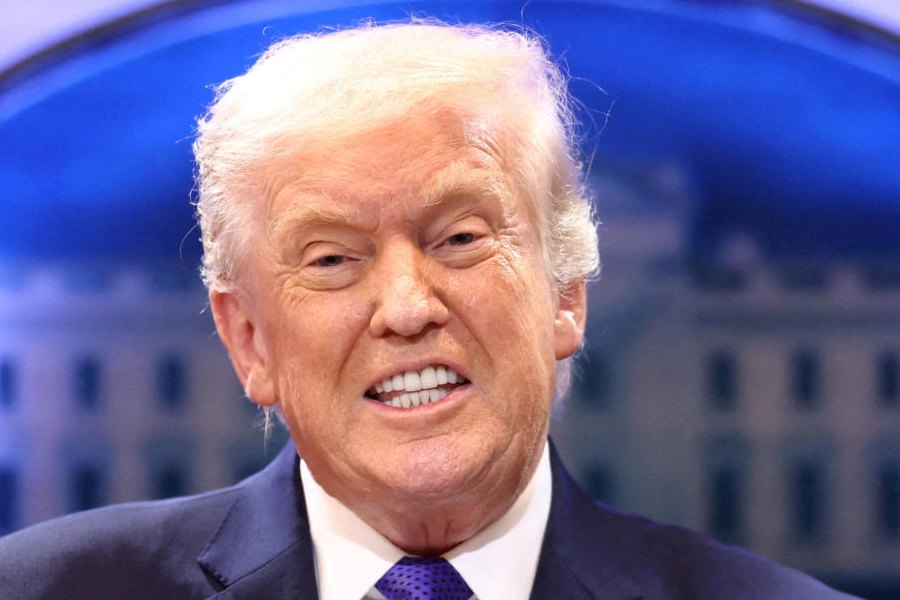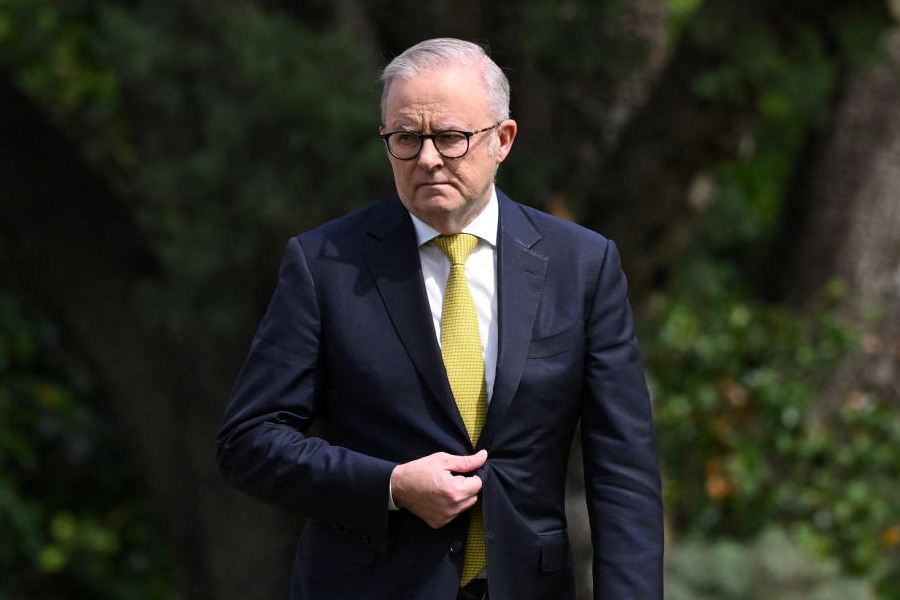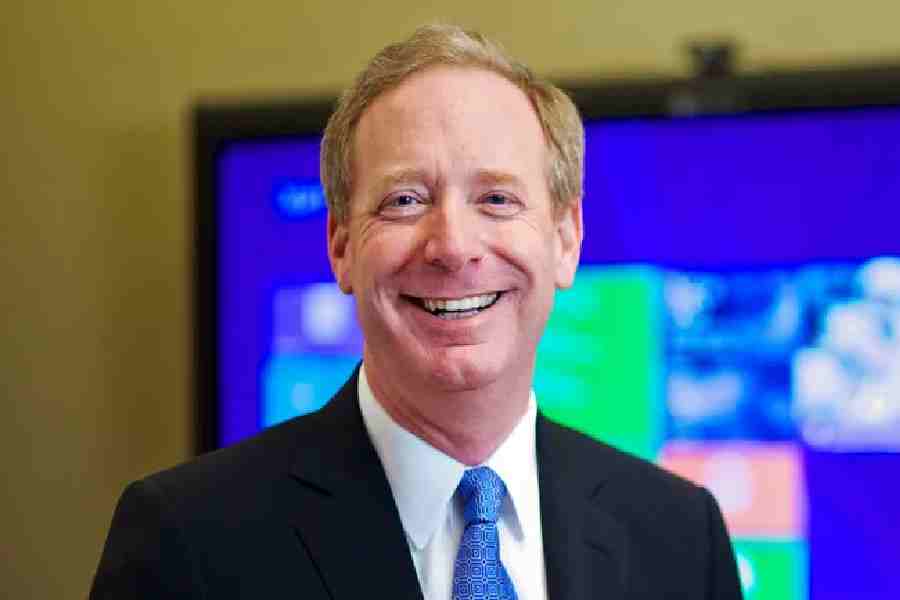|
|
After the results of the last general elections were announced, the Congress members of both Houses met in one of the columned halls of Parliament. The proceedings were telecast live; and I was one of many Indians who watched them. There was, as we recall, an astonishing as well as astonishingly extended display of loyalty to the party’s First Family. Members outdid one another in extolling the intelligence, the wisdom, the patriotism and the sheer saintliness of Srimati Sonia Gandhi. One member prefaced his own comments by drawing attention to his unequalled length of service to the ruling clan. He had been present at the midnight hour on August 14/15, 1947, when Jawaharlal Nehru had made his celebrated “tryst with destiny” speech. And now he was present in the same hall, 57 years later, while Nehru’s great-grandson, Rahul Gandhi, was about to take his seat as the newly elected member from Amethi.
The speaker was Arjun Singh, who was soon to be appointed minister of human resources development in the Government of India. Where other loyalists could claim to have come into politics at the behest of Indira Gandhi and Rajiv Gandhi, only he, it appeared, could draw upon a record of service that was even older. Nehru’s daughter was dead. So were her two children. Sonia Gandhi first visited India four years after Nehru died. Her own children were born only in the Seventies. Thus, Arjun Singh was the one direct living link between India’s first prime minister and India’s future prime minister.
I was reminded of Arjun Singh’s remarks in Parliament House, when reading his more recent account of his first meeting with Jawaharlal Nehru. “When I met Pandit Jawaharlal Nehruji in March 1960,” the minister recalled, “I pledged my total loyalty to him and his family. This was the commitment, which is an article of faith with me. For the past 48 years of my life, I have scrupulously adhered to it. I shall also do everything to maintain the loyalty and commitment to the remaining members of the family till I live.”
Nehru’s papers are closed to scholars, so there is no way of independently verifying Singh’s account. He may, in fact, have met the prime minister in March 1960. He could also perhaps have pledged his loyalty to Nehru personally. But to Nehru’s family? At the time, Indira Gandhi had ended her term as Congress president and retreated into household duties. Sanjay and Rajiv were boys in boarding school in Dehra Dun.
In March 1960, no one knew that 15 years down the line, a single family would come to control India’s oldest political party. Nehru himself had no desire, or hope, or anticipation, that his daughter would come to serve long years as prime minister of India. When her father died in May 1964, Mrs Gandhi was not in politics at all. She was persuaded to accept a junior portfolio in the cabinet of Lal Bahadur Shastri. But she did not much like the job, and contemplated retiring from politics, and even moving to London. However, when Shastri died unexpectedly, the Congress bosses chose Indira Gandhi to succeed him, in part because they thought she was a puppet who could be pulled and pushed as they wished.
A Congress spokesperson recently claimed that their party did not promote sycophancy. Certainly, Jawaharlal Nehru was not a man who liked chamchas hanging around him. If Nehru did indeed meet a young Congressman named Arjun Singh in March 1960, he may have told his visitor of the importance of inner-party democracy, as in functioning taluk and district committees. He may have added a word or two about the importance of religious harmony and the ending of discrimination against women and low castes. That is to say, Nehru would have asked, not for personal loyalty, but for loyalty to the party and to the nation. And, of course, with his daughter in the home and his grandsons in school, the question of loyalty to the family would not have been remotely on the horizon.
Arjun Singh’s account of his 1960 meeting with Jawaharlal Nehru is highly implausible; and his recollection of being present at the midnight hour in 1947 almost certainly false. His own father was a minor politician in the erstwhile Central Provinces, but not, so far as I know, a member of the Constituent Assembly. And even if he was, he could scarcely have brought his sixteen-year-old son into what was a very select circle.
The point, however, is not the veracity of Singh’s accounts; the point is why he has to speak in this manner at all. Contrary to what the Congress spokesperson claimed, sycophancy has been, for the past three decades, the very signature of the Congress. From Indira Gandhi through Sanjay Gandhi and Rajiv Gandhi and now onto Sonia Gandhi, length and loyalty of service (to family, rather than party or nation) have determined the importance and visibility of office assigned. One does not become a Union minister or chief minister only or even chiefly because one might be good at that particular job. A Congressman is appointed to high office only or chiefly because the party president can trust him or her to do his or her bidding. Sometimes loyalty and competence may coincide. Sometimes, the best man may indeed become a minister at the Centre or chief minister of a state. But that would be what I have called it, a coincidence.
Singh himself has been a disastrous choice as HRD minister. In making this judgement I do not have in mind the ‘quota’ controversy that he was at the centre of. The IITs and the IIMs are State-funded; and as such, obliged to address social discrimination as per the mandate of the Constitution. It is in other, and arguably more important, matters that Singh has failed to give the right leadership to the education sector. One could still have quotas and worked to make our universities more responsive, in their teaching and research responsibilities, to the world of the 21st century. (Instead, Singh, in the Congress tradition, has taken them backwards, by appointing vice chancellors and directors on the basis of personal loyalty, rather than competence or qualification.) One could still have quotas and nudged Muslim and Christian institutions towards a more global and cosmopolitan perspective. (Instead, Singh has supported the reactionary elements in these communities.) One could still have quotas in public institutions and at the same time opened up the market for private (including foreign) colleges and universities. (Instead, Singh has made the entry of private players more difficult.)
India claims to be the epicentre of a ‘knowledge economy’. And yet, instead of moving forward to meet the challenges of the day, our universities and research institutions have taken refuge in parochialism and nepotism. Anyone who has anything to do with the education sector knows who is chiefly responsible. And in that ‘anyone’ I also include the prime minister. If the reforms Manmohan Singh initiated as finance minister are to be deepened and sustained, then the quality of human capital will be the critical factor. On a robust, outward-looking, efficient and competitive education system rests the very future of India. This was known in 2004, when Arjun Singh was appointed education minister based on the length and loyalty of his service to the First Family of the Congress. Now, with his political future at stake, Arjun Singh has once more publicly affirmed that very length and loyalty of service. It may be too late for him to work his way back into the inner circle of 10 Janpath. It may also be too late for us to collectively undo the damage he has wrought in four years in a job he was wholly unsuited for in the first place.











